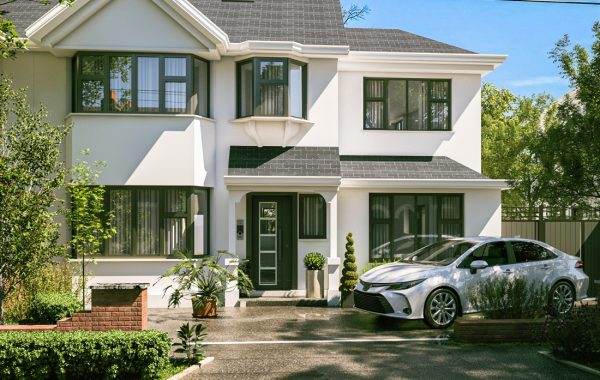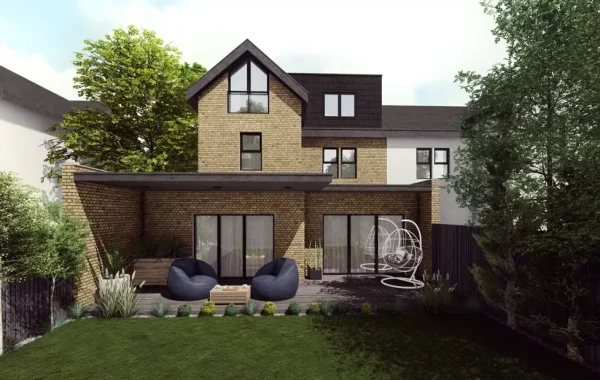
Impact of the Autumn Budget 2025 on Property Owners and Landlords
The Autumn Budget 2025 is setting the direction for the UK to the way it build, manage, and maintain its housing stock. In a moment of great change for the property sector, Studio20 Architects is aware that developers, landlords, and homeowners alike are wondering what these reforms signify for their next step.
“According to official documentation, the 2025 Budget will apply separate tax rates for property income: from April 2027, the basic property-income tax rate will be 22%, the higher rate 42%, and the additional rate 47%.”
It is useful, prima facie, to appreciate how these reforms relate to the rest of the housing framework before getting down to the specifics.
Among other things, this Budget tries to resolve some of those long delays, yet it is also increasing taxes on property income. That, therefore, is a heterogeneous milieu — more latitude for the planning side, but landlords and investors facing tougher margins.
Key Takeaways
- Autumn Budget 2025 increases the tax burden of landlords and homeowners with high-value properties.
- Rental income is going to decrease for a lot of people because of the introduction of new property-income tax bands.
- Starting from April 2028, there will be a new High-Value Council Tax Surcharge.
- The changes to the planning system are meant to make the decision faster and give the first priority to the developments which are connected to the infrastructure.
- It costs a lot to develop on brownfield sites, which is why the viability of many schemes is affected.
- There is a possibility that landlords and developers will change their strategies and focus on conversions or transit-linked projects.
How the Autumn Budget 2025 Planning Changes Affect Owners and Developers
Most of the reforms in the Autumn Budget 2025 revolve around the idea of accelerating planning decisions while also increasing the number of staff in planning authorities across the country.
As a result of the government’s strong policy focus on planning delays, which it considers to be one of the main obstacles to national growth, the Budget responds to this issue by outlining a number of structural changes:
The government is initially injecting funds for hiring 350 new planners and aims to have 1,400 new planning and related staff by the end of the Parliament.
Developments close to railway stations will be subject to a more rigorous “default yes” policy, thus suburban and transit-linked schemes will be facilitated.
Large-scale, infrastructure-linked projects such as new towns and high-density expansions will receive more support.
The reason these changes are significant is that a faster planning pipeline leads to:
- Delivery timelines are becoming more predictable
- Developers’ holding costs are being lowered
- Homeowners given clearer routes if they want to extend or convert their homes
- Greater station-linked development, in particular small plots, is becoming more viable
Why Big Infrastructure and New Towns Are Getting Priority
The Budget is the signal of a strategic change: there will be a preference for large, infrastructure-anchored housing sites rather than scattered individual plots.
This method is powered by the two concepts:
- Building close to transport nodes helps the Green Belt stay intact
- Infrastructure-led projects can deliver more homes at scale
For owners and landlords, this is a change of environment. The locations that are gaining planning favour are those which are well connected to rail, public transit and major transport corridors.
Winners from this transition:
- It will be more likely that infill and conversion projects in areas with high connectivity will receive approval
- Transit-oriented suburbs will have stronger investment potential
- The approval timelines will be shorter for developments that are in line with infrastructure-first planning policies
How the New Tax Rules Reshape Landlord Profitability and Property Ownership
The Budget is primarily focused on the changes to the tax system for the next Autumn Budget 2025 property changes, Autumn Budget 2025 landlords, and high-value property owners.
From April 2027, new bands for the taxation of property income will be introduced:
- 22 % for basic rate
- 42 % for a higher rate
- 47 % for the additional rate
A High-Value Council Tax Surcharge (mansion-tax equivalent) begins in April 2028 for homes above £2 million:
| Property Value | Annual Surcharge |
| £2m–£2.5m | £2,500 |
| £2.5m–£3.5m | £3,500 |
| £3.5m–£5m | £5,000 |
| Over £5m | £7,500 |
As a result of income-tax and National Insurance thresholds being frozen, landlords will be moving into higher tax brackets in stages, even if their real income remains the same, as they will be doing this in small increments. This directly influences the Impact of Autumn Budget 2025 on property owners because:
- Rental income after tax decreases
- The costs of financing through a mortgage for landlords will be more difficult
- Return on investment of medium rental portfolios will decrease
- Certain property owners may decide to decrease their holdings or reorganize through companies
Brownfield Costs Still Rising — What Developers Must Prepare For
In spite of the industry’s pressure, the government decided not to implement a uniform Landfill Tax rate.
As a result:
- Brownfield remediation, waste disposal and enabling works are still costly
- The reduced Landfill Tax rate is going up, together with the normal rate
- Demolition-heavy projects are gradually losing their attractiveness
This trend results in:
- A higher number of retrofit and conversion projects because of less demolition
- More thorough planning of disposal budgets
- Strategic choosing of sites to guarantee making a profit
It is a reminder for developers that “building new” is not always the most financially viable way.
What These Combined Reforms Mean for Landlords, Developers and the Rental Market
The Budget is a mix of positive and negative aspects – on the one hand, planning becomes quicker, but on the other hand, profitability becomes tighter.
Landlords:
- Lower returns on rental properties will make some small or “accidental” landlords, those who did not expect to become landlords, decide to leave due to the tax pressure.
- Net rental returns fall due to the higher Rental income tax rules 2025
- Some may find it more profitable to convert their houses into flats so that they can spread their income and risk
- However, such conversions will require more strict monitoring of space standards, planning quality, and design
Developers:
- Positive effects for large, dense, station-linked projects
- Tight viability for projects that heavily rely on brownfield areas
- More opportunities in places where planning friction has delayed delivery
Homeowners with high-value properties:
- The annual surcharge adds adding recurring cost
- This may have an effect on liquidity, thus slowing the super-prime market turnover
- Buyers will be negotiating more strongly than before because of the future annual tax considerations
This also affects the UK rental market Autumn Budget 2025, most likely leading to the upward pressure of rents because of supply limitations.
Why the Autumn Budget Is Called a “Trade-Off” — Growth vs Revenue
The Budget wants to do two things that are quite in contrast with each other:
- Build new homes at a fast rate
- Increase the state’s income by raising property taxes
However, the Budget is trying to carry on both these acts simultaneously, creating a kind of struggle:
- A tax increase may scare away the capital needed for the development of the housing sector
- Increasing costs of brownfields may slow down revitalization of old industrial areas
- The expansion of the planning system may not be enough to immediately compensate for the decline in the market caused by the hesitations of the investors
Basically, the government is requesting the market to provide more housing with fewer financial incentives, which is a tough challenge.
This is the place where Studio20 Architects is instrumental in strategically planning, optimizing layouts, and leading the design for feasibility to lessen the impact of these reforms.
Your Next Property Decisions Matter More Than Ever
The housing sector is about to undergo a major change. The quicker planning and targeted infrastructure measures give great promise, but higher taxes and increased development costs are making it more difficult for landlords, developers and homeowners to raise their money.
Halfway through these structural changes, Studio20 Architects is still helping clients with compliant design, feasibility, planning strategy and development optimisation.
As the Autumn Budget 2025 reforms get further, being updated and acting strategically will keep you ahead. Studio20 Architects is always there to help you with your planning and property decisions.
FAQs
Are landlords going to be affected by the Autumn Budget 2025 with increased expenses?
Yes. Due to the introduction of higher rental-income tax bands and the freezing of thresholds, a large number of landlords will see their profits decrease.
What is the new High Value Council Tax Surcharge?
Starting from April 2028, the homes with a value of more than £2 million will be charged a yearly surcharge that varies from £2,500 to £7,500.
Is it expected that planning permissions will be quicker?
Yes. The government is committing to a rapid hiring of 350 planners on top of the immediate recruitment, and 1,400 more planning staff are being targeted by them to accelerate approvals.
Would it be less expensive for brownfield to be developed?
No. The costs for landfilling and remediation are still very high, which may result in developers choosing to do conversions rather than complete redevelopment.




